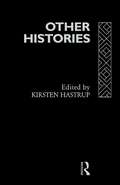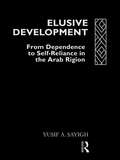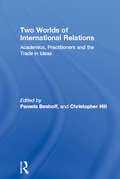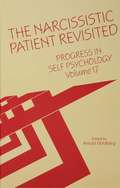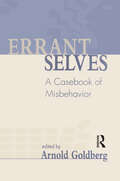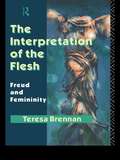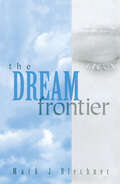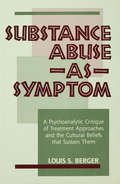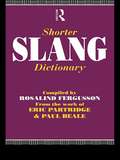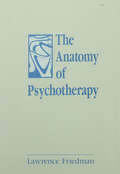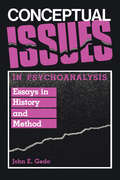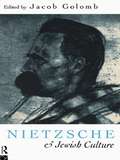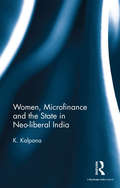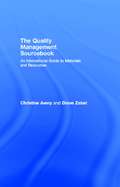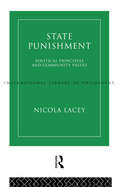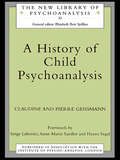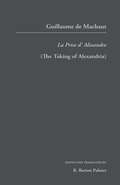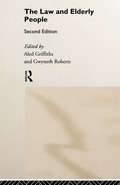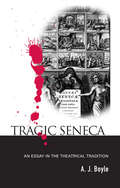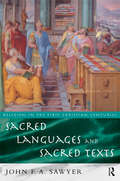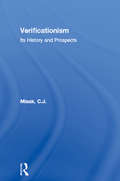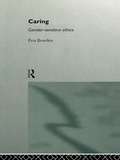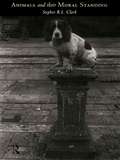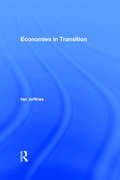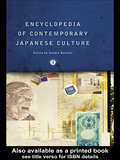Special Collections
Benetech’s Global Certified Accessible Titles
Description: Benetech’s GCA program is the first independent third-party EPUB certification to verify ebook accessibility. By creating content that is born accessible, publishers can meet the needs of all readers. Learn more: https://bornaccessible.benetech.org/
- Table View
- List View
Other Histories
by Kirsten HastrupThe historization of anthropology has entailed a radically new view upon history and the nature of history. This collection of papers from the first conference of the newly formed European Association of Social Anthropologists demonstrate how ways of thinking about history are important features of any production of history, and how cultural concepts enter as forcs of historical causation.
Elusive Development
by Yusif A. SayighFirst published in 1991. Routledge is an imprint of Taylor & Francis, an informa company.
Two Worlds of International Relations
by Christopher Hill and Pamela BeshoffThe aims of this book are to discover how significant academic work in international relations has become for practitioners involved in policy formulation and implementation, and to examine the impact of the policy community on academic work and academic values.On the academic side, theoretical, historical and political economy perspectives are presented. On the practitioner side, there are contributions from diplomats, lawyers and parliamentarians. The principal question at issue is whether, if there is a natural partnership between the modern academic and foreign policy makers, there needs to be preserved a respectful distance between the two worlds.
Progress in Self Psychology, V. 17
by Arnold GoldbergVolume 17 of Progress in Self Psychology, The Narcissistic Patient Revisited, begins with the next installment of Strozier's "From the Kohut Archives": first publication of a fragment by Kohut on social class and self-formation and of four letters from his final decade. Taken together, Hazel Ipp's richly textured "Case of Gayle" and the commentaries that it elicits amount to a searching reexamination of narcissistic pathology and the therapeutic process. This illuminating reprise on the clinical phenomenology Kohut associated with "narcissistic personality disorder" accounts for the volume title. The ability of modern self psychology to integrate central concepts from other theories gains expression in Teicholz's proposal for a two-tiered theory of intersubjectivity, in Brownlow's examination of the fear of intimacy, and in Garfield's model for the treatment of psychosis. The social relevance of self psychology comes to the fore in an examination of the experience of adopted children and an inquiry into the roots of mystical experience, both of which concern the ubiquity of the human longing for an idealized parent imago. Among contributions that bring self-psychological ideas to bear on the arts, Frank Lachmann's provocative "Words and Music," which links the history of music to the history of psychoanalytic thought in the quest for universal substrata of psychological experience, deserves special mention. Annette Lachmann's consideration of empathic failure among the characters in Shakespeare's Othello and Silverstein's reflections on Schubert's self-states and selfobject needs in relation to the specific poems set to music in his Lieder round out a collection as richly broad based as the field of self psychology itself.
Errant Selves
by Arnold GoldbergA major addition to the psychoanalytic casebook literature, Errant Selves: A Casebook of Misbehavior is a collection of case studies dedicated to the psychoanalytic understanding and treatment of behavior disorders. The contributors to this volume explore cases of perversion, delinquency, and addiction in which the misbehavior at issue served primarily to ward off painful affects or states of dysphoria in order to achieve a basic integrity of the self. For these patients, the pathway to self-cohesion entailed the florid acting out typical of narcissistic behavior disorders. Clinical readers of all persuasions will be intrigued by treatment narratives that chronicle the special challenges of working with patients who, in Goldberg's words, "were neither unitary selves nor persons with an easy ability to bolster or reconstitute themselves in socially acceptable ways." Of special interest is the contributors' sensitivity to what they missed with these troubled and troubling patients; they recount examples of skewed focus, of strained rationalization, even of glaring clinical omission, all of which suggest that the patients' psychic splits activated parallel splits on the part of their therapists. What emerges from the contributors' efforts, then, is very much a casebook of our time. It extends the purview of psychoanalysis to the developmental history and psychodynamics of disavowal; explores the analytic management of delinquent, perverse, and addicted patients; and examines the analyst's subjective presence in these treatments, including his or her potential for self-deception and collusion. And it does so in the context of probing a theoretical issue of continuing practical import: whether or not psychoanalytic therapy is best served by viewing the patient as a unitary individual with a coherent sense of agency and an integrated set of values and goals.
The Interpretation of the Flesh
by Teresa BrennanThe `riddle of femininity', like Freud's reference to women's sexuality as a `dark continent', has been treated as a romantic aside or a sexist evasion, rather than a problem to be solved. In this first comprehensive study, Teresa Brennan suggests that by placing these theories in the context of Freud's work overall, we will begin to understand why femininity was such a riddle for Freud.
The Dream Frontier
by Mark J. BlechnerThe Dream Frontier is that rare book that makes available the cumulative wisdom of a century's worth of clinical examination of dreams and then reconfigured that wisdom on the basis of research in cognitive neuroscience. Drawing on psychodynamic theorists and neuroscientific researchers with equal fluency and grace, Mark Blechner introduces the reader to a conversation of the finest minds, from Freud to Jung, from Sullivan to Erikson, from Aserinksy and Kleitman to Hobson, as the work toward an understanding of dreams and dreaming that is both scientifically credible and personally meaningful. The dream, in Blechner's elegantly conceived overview, offers itself to the dreamer as an answer to a question yet to be asked. Approached in thi open-ended manner, dreams come to reveal the meaning-making systems of the unconscious in the total absence of waking considerations of reality testing and communicability. Systems of dream interpretation arise as helpful, if inherently limited, strategies for apprehending this unconscious quest for meaning. Whereas students will appreciate Blechner's concise reviews of the various schools of dream interpretation, teachers and supervisors will value his astute reexamination of the very process of interpretating dreams, which includes the manner in which group discussion of dreams may be employed to correct for individual interpretive biases. Elegantly written, lucidly argued, deftly synooptic but never ponderous in tone, The Dream Frontier provides a fresh outlook on the century just passed along with the keys to the antechambers of the new century's reinvestigation of fundamental questions of conscious and unconscious mental life. It transcends the typical limits of interdisciplinary reportage and brings both researcher and clinician to the threshold of a new, mutually enriching exploration of the dream frontier in search of basic answers to basic questions.
Substance Abuse as Symptom
by Louis S. BergerWhat can psychoanalysis contribute to an understanding of the etiology, treatment, and prevention of substance abuse? Here, Louis Berger contests both the orthodox view of substance abuse as a "disease" explicable within the medical model, and the fashionable dissenting view that substance abuse is a habit controllable through the "willpower" fostered by superficial treatment approaches. According to Berger, substance abuse is first and foremost a symptom. He argues that it is only by grasping this fact that we can understand why standard approaches to treatment and prevention have failed. Berger invokes a wide spectrum of recent analytic insights about infant and child development, the psychology of narcissism, and primitive character disorders in making the case that substance abuse masks serious preoedipal (or "midrange") psychopathology. Such psychopathology, operating at both cultural and person levels, explains why certain individuals become dependent on illicit drugs; it is equally revelatory of why the substance abuse "establishment" -- and society at large -- continues to misconstrue the nature of the problem and to proffer ill-conceived and ineffective remedies. After thoroughly examining the motives, conscious and unconscious, that maintain "mainstream" myths about substance abuse, Berger points the way to alternative approaches to prevention and treatment.
Shorter Slang Dictionary
by Eric Partridge and Paul BealeFrom abdabs to zit From pillock (14th century) to couch potato (20th century) From She'll be apples (Australia) to the pits (USA) This new collection brings together some 5,000 contemporary slang expressions originating in all parts of the English-speaking world. It gives clear and concise definitions of each word, supplemented by examples of their use and information about where and when they came into being. This entertaining reference work will be of use to students of English at all levels and a source of fascination to word-lovers throughout the world.
The Anatomy of Psychotherapy
by Lawrence FriedmanOver the past decades, Lawrence Friedman has emerged as one of the most erudite and provocative theoriss in contemporary psychotherapy. The Anatomy of Psychotherapy interweaves Friedman's major contributions to the analytic and psychiatric literature with extensive new material in arriving at an extraordinarily rich and nuanced appreciation of psychotherapy. The Anatomy of Psychotherapy describes how the therapist makes use of theories and styles in order to achieve equilibrium under stress. This stress, according to Friedman, is related to the "absolute ambiguity" that is essential to psychotherapy. To cope with this ambiguity, the therapist alternates among three different roles, those of reader, historian, and pragmatic operator. Friedman examines these "disambiguating postures" in detail, paying special attention to their bearing on the therapist's narrative prejudice, the relativity of his knowledge, and the relationship of his work to natural science and hermeneutics. Brilliantly constructed and masterfully written, The Anatomy of Psychotherapy traverses the same basic themes in each of its six sections. Readers who are interested in theory can hone in on relevant topics or the work of particular theorists. Readers seeking insight into the demands of daily clinical work, on the other hand, can bypass the systematic studies and immerse themselves in Friedman's engrossing reflections on the experience of psychotherapy. Best served will be those who ponder Friedman's writings and therapy as complementary meditations issuing from a single, unifying vision, one in which psychotherapy, in both its promise and frustrations, becomes a subtle interplay among theories about psychotherapy, the personal styles of psychotherapists, and the practical exigencies of aiding those in distress.
Conceptual Issues in Psychoanalysis
by John E. GedoIn Conceptual Issues in Psychoanalysis, John Gedo's mastery of Freudian theory and broad historical consciousness subserve a new goal: an understanding of "dissidence" in psychoanalysis. Gedo launches his inquiry by reflecting expansively on recent assessments of Freud's character. His acute remarks on the intellectual and personal agendas that inform the portraits of Freud offered by Frank Sulloway, Jeffrey Masson, and Peter Swales pave the way for his own definition of psychoanalysis in historical context. Then, in topical studies on Sandor Ferenczi, Melanie Klein, and Heinz Kohut, he explicates the commonalities that bind together three generations of dissidents, each of whom undertook to supplant the edifice of hypotheses erected by Freud with alternative theories. Interspersed with these essays are quite insightful studies of Lou Andreas-Salome and David Rapaport, whom Gedo sees as "epistemological referees" attempting to reconcile viewpoints unique to their generations. In the second part of the book, Gedo argue that analysis now has the opportunity to move beyond this pattern of dissidence followed by mediation by drawing on observational research about infancy and early childhood to validate or refute its clinical hypotheses. In these chapters, Gedo offers critical commentary on recent efforts to extrapolate from infant research to the psychoanalytic theory of development. Only then does he offer his own measured estimation of the "legacy of infancy and the technique of psychoanalysis." This review of "the challenge of scientific method" as it bears on analysis culminates in concluding chapters that probe the status of analysis as a hermeneutic discipline and the contribution of analysis to "vocabularies of moral deliberation."
Nietzsche and Jewish Culture
by Jacob GolombFriedrich Nietzsche occupies a contradictory position in the history of ideas: he came up with the concept of a master race, yet an eminent Jewish scholar like Martin Buber translated his Also sprach Zarathustra into Polish and remained in a lifelong intellectual dialogue with Nietzsche. Sigmund Freud admired his intellectual courage and was not at all reluctant to admit that Nietzsche had anticipated many of his basic ideas.This unique collection of essays explores the reciprocal relationship between Nietzsche and Jewish culture. It is organized in two parts: the first examines Nietzsche's attitudes towards Jews and Judaism; the second Nietzsche's influence on Jewish intellectuals as diverse and as famous as Franz Kafka, Martin Buber, Franz Rosenzweig and Sigmund Freud. Each carefully selected essay explores one aspect of Nietzsche's relation to Judaism and German intellectual history, from Heinrich Heine to Nazism.
Women, Microfinance and the State in Neo-liberal India
by K. KalpanaThis book discusses women-oriented microfinance initiatives in India and their articulation vis-à-vis state developmentalism and contemporary neo-liberal capitalism. It examines how these initiatives encourage economically disadvantaged rural women to make claims upon state-provided microcredit and connect with multiple state institutions and agencies, thereby reshaping their gendered identities. The author shows how Self-Help Group (SHG)-based microfinance institutions mobilise agency and create channels of empowerment for women as well as make them responsible for alleviating poverty for themselves and their families. The book also brings out the importance of factoring in women’s dissenting voices when they negotiate developmental projects at the grassroots level. Rich in empirical data, this volume will be useful to scholars and researchers of development studies, gender studies, economics, especially microeconomics, politics, public policy and governance.
The Quality Management Sourcebook
by Christine Avery and Diane ZabelThe concept of Quality Management began in the manufacturing sector, but a growing concern with quality in other areas of the economy has led to its wider application in service industries, government, education, and other not-for-profit agencies. A great quantity of material related to quality management has been produced in recent years, much of it by small presses, professional and trade associations, and consultants. The Quality Management Sourcebook is the first in-depth, international guide to the most useful material and sources of information.The book begins with the origins of quality management, explains how it evolved, examines its current situation, and explores the future. The book is divided into five main sections:* Introduction: General sources for information* Applications of total quality management* Focus on specific aspects of quality management* Quality in the future* Resource materialsThe Quality Management Sourcebook is an essential reference for everybody involved in either the theory or practice of quality management: in manufacturing, retail, banking, and insurance, the utilities industry, the transportation industry, health, education and other public services. Over 900 citations cover books, journal articles, technical reports, video training materials and software. Each is followed by a descriptive annotation. Resource materials include strategies for locating additional information; training materials; organizations; and consultants. The book concludes with a glossary of quality management terms, a name index, a title index, and a detailed subject index.
State Punishment
by Nicola LaceyNicola Lacey presents a new approach to the question of the moral justification of punishment by the State. She focuses on the theory of punishments in context of other political questions, such as the nature of political obligation and the function and scope of criminal law. Arguing that no convincing set of justifying reasons has so far been produced, she puts forward a theory of punishments which places the values of the community at its centre.
A History of Child Psychoanalysis
by the late Geissmann and Claudine GeissmannChild analysis has occupied a special place in the history of psychoanalysis because of the challenges it poses to practitioners and the clashes it has provoked among its advocates. Since the early days in Vienna under Sigmund Freud child psychoanalysts have tried to comprehend and make comprehensible to others the psychosomatic troubles of childhood and to adapt clinical and therapeutic approaches to all the stages of development of the baby, the child, the adolescent and the young adult. Claudine and Pierre Geissmann trace the history and development of child analysis over the last century and assess the contributions made by pioneers of the discipline, whose efforts to expand its theoretical foundations led to conflict between schools of thought, most notably to the rift between Anna Freud and Melanie Klein. Now taught and practised widely in Europe, the USA and South America, child and adolescent psychoanalysis is unique in the insight it gives into the psychological aspects of child development, and in the therapeutic benefits it can bring both to the child and its family.
Guillaume de Mauchaut
by R. Barton PalmerThis is the first edition in more than a century and the first modern English translation of the crowning masterwork of Machaut's literary career. Based on his extensive discussion with returning crusaders, the poet recounts King Peter I of Cyprus's successful attack and capture of the Egyptian city of Alexandria in 1365. This volume features a full discussion of Machaut's life and career, historical commentary, extensive annotation and a select bibliography.
The Law and Elderly People
by Aled Griffiths and Dr Gwyneth Roberts and Gwyneth RobertsAlthough the number of elderly people in Britain is increasing steadily, the law in relation to their particular needs is a relatively neglected field. The Law and Elderly People was the first text to provide easily accessible information for those involved in advice-giving and service provision in this rapidly developing field. This second edition has been fully revised and completely updated to reflect the major legal and social changes which have recently occurred. Concerned for the independence and autonomy of both young elderly and the old elderly, the book covers employment and income, accomodation and housing, community and residential care, health provision and delivery and family relationships, thus providing an important guide to the most important legal issues. The Law and Elderly People will be of practical help to all those concerned with the welfare of the elderly and to undergraduates and lecturers in social work, law and gerontology.
Tragic Seneca
by A. J. BoyleTragic Seneca undertakes a radical re-evaluation of Seneca's plays, their relationship to Roman imperial culture and their instrumental role in the evolution of the European theatrical tradition.Following an introduction on the history of the Roman theatre, the book provides a dramatic and cultural critique of the whole of Seneca's corpus, analysing the declamatory form of the plays, their rhetoric, interiority, stagecraft and spectacle, dramatic, ideological and moral structure and their overt theatricality. Each of Seneca's plays is examined in detail, locating the force of Senecan drama not only in the moral complexity of the texts and their representations of power, violence, history, suffering and the self, but the semiotic interplay of text, tradition and culture.The later chapters focus on Seneca's influence on Italian, English and French drama of the Renaissance. A.J. Boyle argues that tragedians such as Cinthio, Kyd, Marlowe, Shakespeare, Webster, Corneille, and Racine owe a debt to Seneca that goes beyond allusion, dramatic form and the treatment of tyranny and revenge to the development of the tragic sensibility and the metatheatrical mind.Tragic Seneca attempts to restore Seneca to a central position in the European literary tradition. It will provide readers and directors of Seneca's plays with the essential critical guide to their intellectual, cultural and dramatic complexity.
Sacred Languages and Sacred Texts
by John SawyerSacred Languages and Sacred Texts is the first comprehensive study of the role of languages and texts in the religions of the Greco-Roman world, including Judaism and Christianity.It explores bilingualism, language learning, literacy, book production and translation, as well as some of the more explicitly religious factors, including beliefs about language, missionary zeal, ritual, conservatism and the power of a priestly establishment. Sacred Languages and Sacred Texts sheds new light on the role of the power of words, spoken and written, in religion.
Verificationism
by C.J. MisakVerificationism is the first comprehensive history of a concept that dominated philosophy and scientific methodology between the 1930s and the 1960s. The verificationist principle - the concept that a belief with no connection to experience is spurious - is the most sophisticated version of empiricism. More flexible ideas of verification are now being rehabilitated by a number of philosophers.C.J. Misak surveys the precursors, the main proponents and the rehabilitators. Unlike traditional studies, she follows verificationist theory beyond the demise of positivism to examine its reappearance in the work of modern philosophers. Most interestingly, she argues that despite feminism's strenuous opposition to positivism, verificationist thought is at the heart of much of contemporary feminist philosophy.Verificationism is an excellent assessment of a major and influential system of thought.
Caring
by Peta BowdenIn Caring, Peta Bowden extends and challenges recent debates on feminist ethics. She takes issue with accounts of the ethics of care that focus on alleged principles of caring rather than analysing caring in practice. Caring, Bowden argues, must be understood by 'working through examples'. Following this approach, Bowden explores four main caring practices: mothering, friendship, nursing and citizenship. Her analysis of the differences and similarities in these practices - their varying degrees of intimacy and reciprocity, formality and informality, vulnerability and choice - reveals the practical complexity of the ethics of care. Caring recognizes that ethical practices constantly outrun the theories that attempt to explain them, and Bowden's unique approach provides major new insights into the nature of care without resorting to indiscriminate unitary models. It will be essential reading for all those interested in ethics, gender studies, nursing and the caring professions.
Animals and Their Moral Standing
by Stephen R. Clark and Stephen R ClarkTwenty years ago, people thought only cranks or sentimentalists could be seriously concerned about the treatment of non-human animals. However, since then philosophers, scientists and welfarists have raised public awareness of the issue; and they have begun to lay the foundations for an enormous change in human practice. This book is a record of the development of 'animal rights' through the eyes of one highly-respected and well-known thinker. This book brings together for the first time Stephen R.L. Clark's major essays in one volume. Written with characteristic clarity and persuasion, Animals and Their Moral Standing will be essential reading for both philosophers and scientists, as well as the general reader concerned by the debates over animal rights and treatment.
Economies in Transition
by Ian JeffriesThis volume provides an in-depth review of major economic developments in those economies which are in some stage of transition, following the collapse of communism in the Eastern block. The book is divided into four parts: * theoretical issues in the transition from command to market economies * the events in the fifteeen independent countries of the former Soviet Union * Eastern Europe * non-European states In all, the author chronicles events from 1993 to 1995 in thirty-five countries. Economic developments are set in their political context and presented chronologically as far as possible. A Guide to the Economies in Transition carries on where Ian Jeffries' previous book left off. The work is entirely new and, as such, can be seen as a companion to the earlier title. These books are becoming known as invaluable guides, providing unique levels of reference in work of this type.
Encyclopedia of Contemporary Japanese Culture
by Sandra BuckleyOffering extensive coverage, this Encyclopedia is a new reference that reflects the vibrant, diverse and evolving culture of modern Japan, spanning from the end of the Japanese Imperialist period in 1945 to the present day. Entries cover areas such as literature, film, architecture, food, health, political economy, religion and technology and they range from shorter definitions, histories or biographies to longer overview essays giving an in-depth treatment of major issues.With over 700 alphabetically arranged entries, this Encyclopedia will be an invaluable reference tool for students of Japanese and Asian Studies, as well as providing a fascinating insight into Japanese culture for the general reader. Suggestions for further reading, a comprehensive system of cross-referencing, a thematic contents list and an extensive index all help navigate the reader around the Encyclopedia and on to further study.
